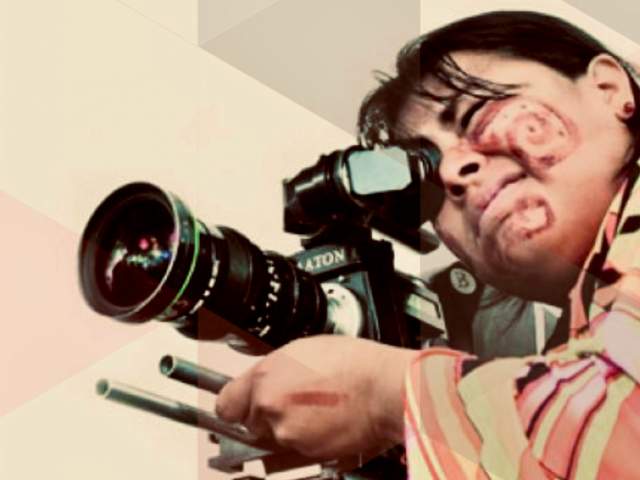Indigenous Filmmakers

Meet the indigenous filmmakers who made Facing Extinction Defending Life.
LifeMosaic's films are co-creations between many indigenous leaders, filmmakers and advisors from Africa, Asia, South America, and Polynesia. If you are an indigenous filmmaker interested collaborating, please get in touch.

Konini Rongo belongs to the Māori people from The Cook Islands in the Pacific. Konini is a conservationist, photographer and filmmaker. She is also a dedicated guardian of her ancestral lands and waters as part of the Kōrero O Te `Ōrau’s conservation, reforestation and food security project.

Priscila Tapajowara is from Tapajó in the Brazilian Amazon, Priscila is an indigenous activist, climate activist, photographer, producer of audiovisual content and co-coordinator of the indigenous media NGO Mídia India. (@priscilatapajowara)

Mathias Tooko, Loita Maasai from Northern Tanzania is a filmmaker as well as a broadcaster and presenter on Maasai Community Radio. Bhe focussed on sharing information through the Maasai elders in order to protect the culture and ancestral territory of the Maasai people.

Nanang Sujana, Rejang, Indonesia. Nanang is an award winning documentary filmmaker whose work has involved directing, filming and editing a variety of films such as environmental, indigenous peoples, social and human rights. He has been work for news features and programming on BBC Natural History, Netflix, National Geographic, The Guardian, HBO, PBS, Al Jazeera, Stern TV and other major broadcasters. Currently he actively engages with Indonesia Nature Film Society (INFIS) as a board and principal filmmaker. (http://nanangsujana.id/)

Leiqui Uriana Henriquez, Wayuu Siijona, Colombia. Leiqui is a documentary filmmaker graduated from the Escuela Internacional de Cine y Tv EICTV de San Antonio de los Baños in Cuba (2012). Since 2004 she has participated in several Colombo-Venezuelan film productions including for Señal Colombia, Canal Capital, ProColombia and Canal Caracol. She was field producer in the films: "Pájaros de Verano" (2017) and "Regreso al Mar de mis Muertos" (2019) and was part of the jury for the Cartagena International Film Festival in its 59th, 60th and 61st editions. She is currently promoting WayuuLab's first Indigenous Film Lab in Colombia and the Wayuu MUCIWA Film and Video Showcase.

Kynan Tegar belongs to the Dayak Iban people from Indonesia. Kynan is a young Dayak filmmaker from Sungai Utik, West Kalimantan. He is home schooled and makes films. Since finishing formal primary school he has pursued his passion for photography, videography, nature and learning the in-depth culture of the Iban people. Living in the local traditional longhouse and learning about the ancestral knowledge from the adat leader Apay Janggut, who defended the community fiercely from illegal logging.

Rupa Flores is from Peru. He is a freelance photographer from Lima, focused on the creation of audiovisual content for the dissemination of cultural activities and social events. He works closely with Feria Perú Independiente, Proyecto AMIL, Techitos Legales and Diez Talentos theater school. Rupa has a special interest in the sharing of native cultures and realities through self-managed photographic projects that link collective processes of vindication of human and collective rights, as well as art projects for social transformation developed by grassroots organizations and indigenous peoples. Portfolio: https://rupachay.tumblr.com/

Luis Enrique Becerra Velarde, Peru. Luis is a documentary photographer from Lima, with a bachelor's degree in journalism from the Pontificia Universidad Católica del Perú. He is a member of the collective FAC - fotografxs autocovocadxs. His work explores the link between human rights, migration, gender, cultural heritage, identity and territory.
Get Involved
“These trainings for us Next Generation Indigenous Leaders sharpen our ability to facilitate, and to mobilise people and resources.”
Kezia Fitriani, Indonesia. Kezia has taken part in 2 LifeMosaic trainings and received mentoring for 1 year)
